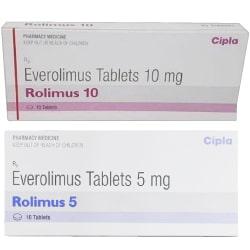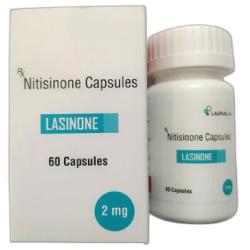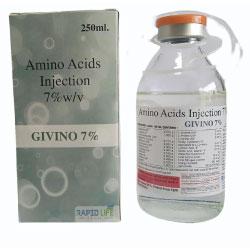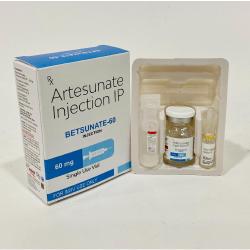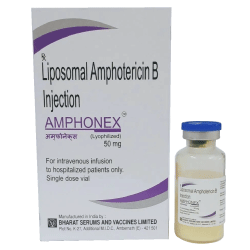Description
Everolimus Tablet is a kinase inhibitor used for the treatment of:
-
- Postmenopausal women with advanced HR-positive, HER2-negative breast cancer together with exemestane after failure of treatment with letrozole or anastrozole.
- Adult patients with progressive neuroendocrine tumors of pancreatic origin (PNET) and adult patients with progressive, well-differentiated, non-functional neuroendocrine tumors (NET) of gastrointestinal (GI) or lung origin that are unresectable, locally advanced or metastatic.
- Adult patients diagnosed with advanced renal cell carcinoma (RCC) who have not responded to prior treatment with sunitinib or sorafenib.
- Adult patients diagnosed with renal angiomyolipoma and tuberous sclerosis complex (TSC), who do not currently need immediate surgical intervention.
Dosage and Side Effects of Everolimus Tablet:
The recommended dosage of Everolimus for patients with HR-positive, HER2-negative breast cancer, PNET, renal cell carcinoma (RCC), and tuberous sclerosis complex (TSC) is 10 mg orally once daily until disease progression or unacceptable toxicity. Take Everolimus tablets by swallowing them whole with a glass of water. It is not advisable to break or crush tablets.
The most common side effects of Everolimus in patients with Breast cancer, NET, and RCC are abdominal pain, fever, rash, infections, fatigue, diarrhea, edema, nausea, stomatitis, asthenia, cough, headache, and decreased appetite.
The most common side effect of Everolimus in patients with TSC-associated renal Angiomyolipoma is stomatitis.
Warning and Precautions of Everolimus Tablet:
- Non-infectious pneumonitis may occur in patients treated with Everolimus Tablet. Consider a diagnosis of non-infectious pneumonitis in individuals presenting with non-specific respiratory symptoms. Be mindful of opportunistic infections like pneumocystis jiroveci pneumonia (PJP) when considering potential diagnoses. Patients should report quickly any new or worsening respiratory signs and symptoms.
- Rolimus tablet has immunosuppressive properties and may predispose patients to fungal, bacterial, viral, or protozoal infections, including infections with opportunistic pathogens. Complete treatment of preexisting invasive fungal infections before starting treatment. Keep an eye on patients for any indications or signs of infection. Withhold or permanently stop Rolimus tablets based on the severity of the infection.
- Anemia, lymphopenia, neutropenia, and thrombocytopenia may be reported in patients taking Rolimus tablet. Before beginning Rolimus 5 mg/10 mg tablet treatment, it’s essential to check your complete blood count every six months for the first year, then yearly thereafter. Withhold or permanently stop Rolimus tablet based on severity.
- Hyperglycemia, hypercholesterolemia, and hypertriglyceridemia may be reported in those taking Rolimus tablets. Monitor lipid profile before starting treatment and later on annually. When possible, achieve optimal glucose and lipid control before starting Rolimus tablets treatment.
- Everolimus delays wound healing and increases the occurrence of wound-related complications like wound infection, wound dehiscence, lymphocele, incisional hernia, and seroma. These wound-related complications may need surgical intervention. Exercise caution with the use of Everolimus in the peri-surgical period.

